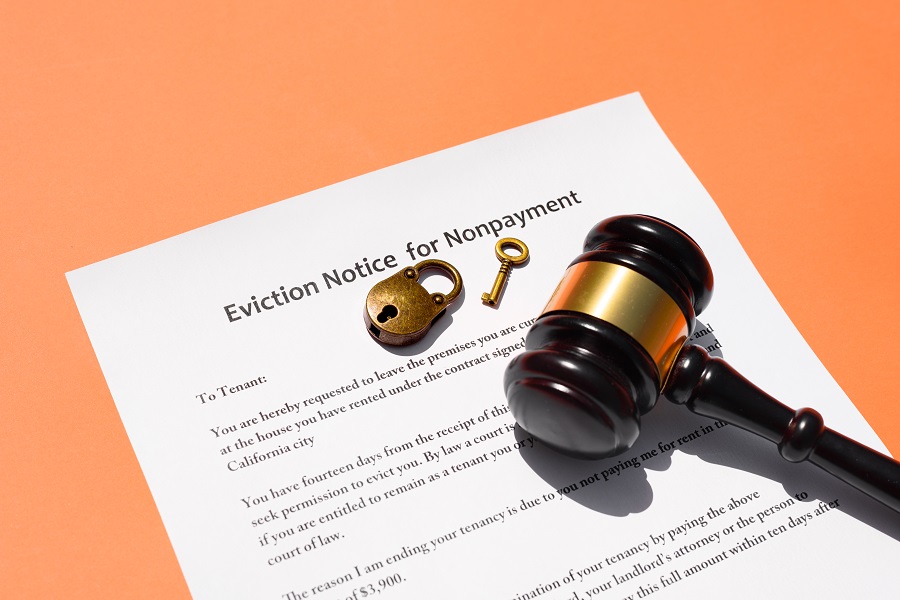Legal remedies in dealing with bad tenants

What can you do in the unfortunate event of a tenant defaulting on rents or overstaying after termination of the rental term? Chur Associates founder and managing partner Chris Tan offers some legal advice to landlords.
1 Eviction notice
Based on the tenancy contract, an eviction notice can be issued if the tenant defaults multiple times in paying rent or overstays the tenancy term.
A certain grace period needs to be given to the tenant to vacate the property and pay all overdue rents. The notice has to be signed by the tenant as an evidence that he or she is aware of the notice.
According to Tan, the legal fees to issue such notices are about RM500 to RM1,000.
2 Eviction order
If the tenant remains in the premises after the expiry of the period stated in the eviction notice, the landlord needs to obtain an eviction order from the court before he or she can repossess the property from the tenant.
The eviction order will allow the landlord to claim for outstanding rental, double rental (from the dates of the expiry of the eviction notice until delivery of vacant possession to the landlord) and recovery of the property’s vacant possession.
“The eviction order can take three to six months to process at the Session Court, and the period might drag even longer due to the conditional movement order (CMCO),” Tan explains.
He adds that the legal cost of the proceeding is around RM8,000 to RM10,000 if the summon is not contested. If contested, the cost could be somewhere around RM10,000 to RM25,000.
3 Distress action
The landlord may also apply to the court for the issuance of a warrant of distress for the recovery of the overdue rents by seizing the tenant’s goods and selling them to recover the outstanding rental.
Tan notes that in general, it would also take three to six months to get the distress order, or even longer during the CMCO period.
He reminds landlords that this action does not allow them to recover the possession of the premises, but rather to reclaim the outstanding rents by selling the tenant’s assets at a public auction. This means that even with the distress order, the tenancy may still continue.
Tan stresses that it is not advisable for landlords to take illegal “self-help measures” as these actions may result in the landlord being sued by the tenant for damages caused to the tenant’s belongings.
Common “self-help measures” that landlords take include changing padlocks, disconnecting water and electricity supplies and entering the premises by force on their own.
It is noteworthy that the tenancy agreement plays a vital role in taking legal actions against rent-defaulting or overstaying tenants.
“Generally, the legal remedies are similar in residential and commercial properties,” Tan adds.
How to deal with uncooperative tenants?
If the tenant cannot be contacted or is unwilling to open the door, the landlord could lodge a police report. To prevent a lawsuit from the tenant, the landlord needs to break the door locks in the presence of a police officer and an independent witness.
“A prudent landlord would take as many as possible photos of the interior of the demised premises to ensure that the tenant could not later claim for loss of properties,” Tan shares.

He also advises landlords to place a notice on the front door to inform the tenant that he or she should contact the landlord within one or two weeks’ time if he or she wants to take back his or her assets in the house.
In addition to these, it is advisable to place a photocopy of the filed police report along with the notice, to indicate the entrance into the premises is legal.
Nevertheless, Tan notes that breaking into a house is merely a current practice, and the action is not recognised by law as a “legal remedy”, which means there is a certain legal risk to it. Hence, it is best to go to a lawyer first before acting.
This story first appeared in the EdgeProp.my e-Pub on Dec 11, 2020. You can access back issues here.
Get the latest news @ www.EdgeProp.my
Subscribe to our Telegram channel for the latest stories and updates
Follow Us
Follow our channels to receive property news updates 24/7 round the clock.
Telegram

Latest publications
Malaysia's Most
Loved Property App
The only property app you need. More than 200,000 sale/rent listings and daily property news.
